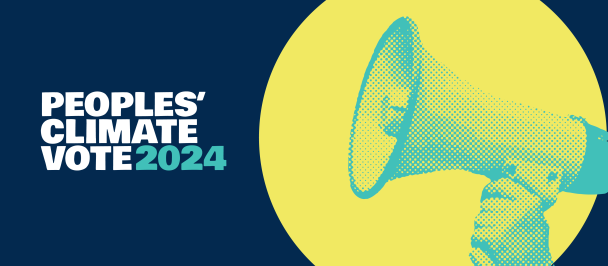UAE’s Minister of State for Artificial Intelligence, UNDP and e& discussed ways to harness the power of AI for sustainable development
December 19, 2023

Dubai: Artificial intelligence is growing to become one of the key technologies in the world. In a lively discussion at COP28 that gathered His Excellency Omar Sultan Al Olama, UAE’s Minister of State for Artificial Intelligence, Digital Economy and Remote Work Application, Achim Steiner, Administrator, UNDP and Hatem Dowidar, Group CEO, e& in a side event to explore meaningful ways of harnessing the power of artificial intelligence (AI) for advancing sustainable development and its critical role of in responding to the climate crisis.
This event convened a distinguished panel of leaders, executives and experts, initiating a thorough discussion on the effective utilization of AI for climate action. The discussions encompassed the exploration of cutting-edge AI applications for climate action, formulation of policy frameworks, and collaborative endeavors, all with the overarching goal of mitigating the impacts of climate change and promoting long-term sustainability.
In the opening panel that focus on discussions with rich insights on harnessing the power of AI to combat climate change, H.E. Omar Sultan Al Olama stated the UAE’s steps to spearheading dialogues on pivotal challenges. He emphasized the UAE’s role in establishing a platform that fosters global collaboration, seeking optimal solutions for the benefit of future generations. Furthermore, His Excellency added the key role of Artificial intelligence in addressing climate change, highlighting its pivotal role in crafting sustainable solutions that shape the future of both environmental sustainability and the advancement of AI.
Al Olama said, “Today, stand at many critical junctures, not just environmentally, but also economically, politically, and technologically, and here is our chance at COP28 to gather and explore the aspects of a better tomorrow.”
Al Olama added that as AI continues to grow in importance, so does the significance of its responsible development and deployment. "We are committed to ensuring that AI development aligns with shared principles to create ecosystems that are both accountable and beneficial for everyone. We aim to prevent the benefits of AI from becoming exclusive to a few, ensuring inclusivity for all of humanity. In the UAE, this is not a new story for us; we have long recognized the transformative potential of AI. We have integrated it into the very fabric of our national agenda and embedded it within our 2031 National AI Strategy. Through this strategy, we aim to make significant strides in incorporating AI into all sectors, while also developing our own AI capabilities and talents.
“AI holds the potential to revolutionize the way we understand, mitigate, and adapt to climate change by allowing us to better identify risks, vulnerabilities, and disruptions. Yet despite its promise, we must also recognize AI cannot be used to solve the climate crisis in isolation.”, said UNDP Administrator Achim Steiner. “Our commitment is to ensure that this powerful tool is placed in the hands of policymakers, who can harness its full potential. The deployment of AI must be guided by human intelligence, and we are dedicated to integrating these complementary forms of intelligence in addressing climate change.” he added.
During the panel, Hatem Dowidar Group CEO, e& shared insights on how AI plays an important role in its journey to achieving net-zero, as attaining carbon neutrality is not only an environmental responsibility but also a crucial strategic priority. “The UAE has embarked on a bold path, integrating AI into key sectors and paving the way for a sustainable future. As His Excellency has mentioned, AI is increasingly vital in our fight against the pressing issues of climate change, from mitigating risks due to natural disasters, to supporting humanity in the adaptation of a sustainable future. At e& we are working with organisationsorganizations like UNDP in the movement towards ‘Digital for Sustainable Development’, as technology plays an important role in shaping the future. In fact both the UAE Ministry of AI and e& are part of the World Economic Forum AI Governance Alliance that aims to unite global leaders and governments to champion responsible global design and release of inclusive AI systems.
“The shaping of AI governance, fostering innovation, and ensuring that the potential of AI is harnessed for the betterment of society while upholding ethical considerations and inclusivity is critical. This is not merely an opportunity but a responsibility. I encourage industries to adopt AI, not only to enhance operational efficiency, but also do so in an ethical and responsible manner.”
In a second panel, Jayne Stancavage, the Vice President of Policy and Regulatory Affairs at Intel Corporation. Sultan Al Hajji, Vice President of Public Affairs and Alumni Relations, Mohamed Bin Zayed University of AI, Dr. Najwa Aaraj, Chief Researcher, Cryptography Research Center / Autonomous Robotics Research Center, Technology Innovation Institute discussed the key initiatives and projects where AI is being applied to address climate change challenges and the future impact of these initiatives on global climate change mitigation and adaptation efforts.

 Locations
Locations



